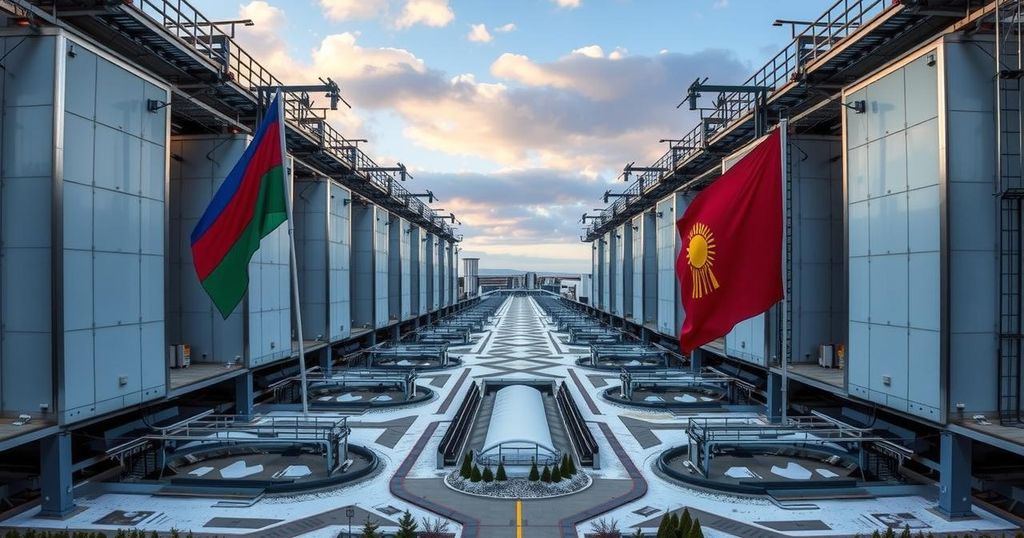Kazakhstan and Mongolia have signed a memorandum of cooperation in nuclear energy, formalizing a strategic partnership. This agreement follows President Kassym-Jomart Tokayev’s visit to Ulaanbaatar, during which he emphasized cooperation over natural resources. The memorandum was finalized alongside several commercial agreements and a referendum on a nuclear power plant in Kazakhstan.
Kazakhstan and Mongolia have officially enhanced their collaboration in the nuclear energy sector through the signing of a memorandum of cooperation. This significant agreement was executed between Kazakhstan’s Ministry of Energy and the Executive Office of the Nuclear Energy Commission of Mongolia, following a recent visit by President Kassym-Jomart Tokayev to Ulaanbaatar. During this visit, President Tokayev underscored the abundance of natural resources available in both nations, articulating, “We will work together on the exploration and development of iron, phosphate, bauxite, and rare mineral deposits. Kazakh entrepreneurs are ready to explore the potential of Mongolia’s mining sector.” Furthermore, President Tokayev and Mongolian leaders formalized a Joint Declaration that establishes a strategic partnership between Kazakhstan and Mongolia, commemorated by a ceremonial exchange of signed documents. This signing occurred shortly after the inaugural meeting of the Business Council in Ulaanbaatar, where business representatives from both countries concluded major commercial agreements and other collaborations aimed at boosting economic ties. Additionally, it was reported that on October 6, Kazakhstan conducted a referendum concerning the establishment of a nuclear power plant, with President Tokayev having announced the date for this referendum on September 2, 2024. In 2023, Kazakhstan’s Ministry of Energy identified four prominent candidates for the construction of the nuclear facility, including China’s CNNC, South Korea’s KHNP, France’s EDF, and Russia’s Rosatom. The involvement of international bodies such as the International Atomic Energy Agency (IAEA) is anticipated to assure the project’s compliance and oversight.
The cooperation between Kazakhstan and Mongolia in the field of nuclear energy marks a critical step towards leveraging the significant natural resources of both nations. Kazakhstan, being a key player in the global uranium market, presents an opportunity for Mongolia, which seeks to develop its mining sectors further. The strategic partnership established through this memorandum not only solidifies their cooperative efforts in nuclear energy but also facilitates broader economic collaborations. The agreements signed during President Tokayev’s visit indicate a commitment to developing auxiliary resources such as rare minerals, which are essential in the global supply chain. Moreover, the mention of a referendum regarding a nuclear power plant indicates Kazakhstan’s serious intentions to expand its nuclear energy capabilities, ensuring a sustainable and diversified energy future.
In conclusion, the signing of the memorandum of cooperation in the nuclear energy sector between Kazakhstan and Mongolia signifies a pivotal advancement in their strategic partnership. This collaboration seeks to optimize the exploration and management of their extensive natural resources while fostering stronger economic ties. The forthcoming referendum in Kazakhstan highlights the country’s proactive stance on enhancing its nuclear energy infrastructure, supported by potential international partnerships, indicative of a robust future in energy collaboration between the two nations.
Original Source: en.trend.az







